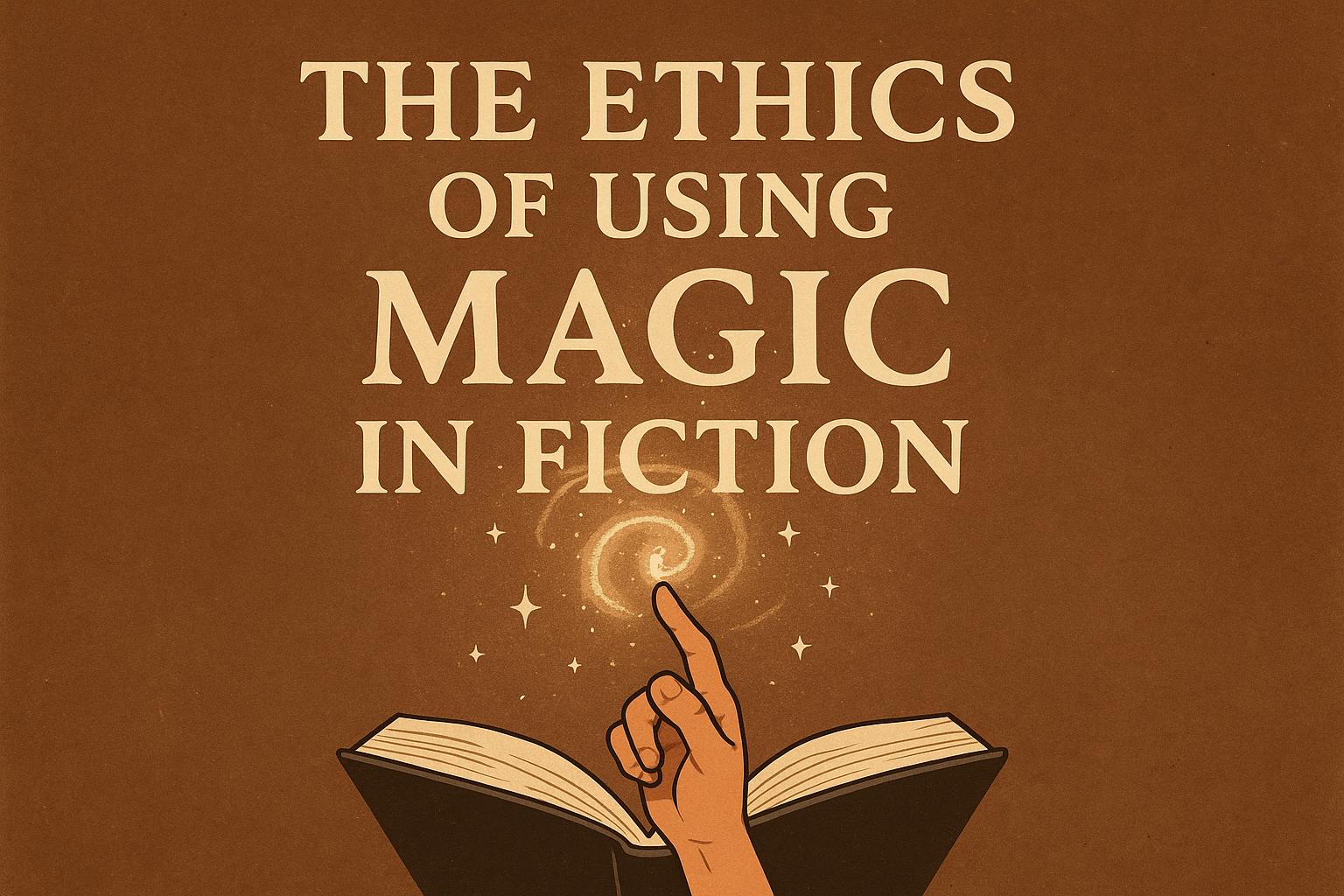The Ethics of Using Magic in Fiction

The Ethical Landscape of Magic in Fiction
Magic in fiction is a captivating tool that allows writers and creators to explore limitless possibilities. It opens doors to worlds where the impossible becomes possible and narratives can transcend the boundaries of reality. However, its usage raises critical ethical questions regarding the portrayal and impact of magical elements. This article delves into these ethical considerations and their implications for both creators and audiences.
Representational Concerns
The depiction of magic in fiction is not merely a narrative choice; it is a representational decision influenced by cultural beliefs, ethical values, and religious practices. The categorization of certain types of magic as inherently evil or good can have a profound impact, potentially reinforcing or challenging cultural stereotypes. This makes the act of portrayal a significant ethical concern. Authors must consider whether their depiction respects the beliefs and traditions associated with magic from different cultures. For instance, when a narrative draws upon magic derived from specific cultural practices, it should be approached with sensitivity and respect to avoid cultural appropriation. A failure to do so could result in perpetuating misunderstandings or fostering resentment among audiences from diverse cultural backgrounds.
The Influence on Audience Perception
The way magic is depicted in fiction shapes audience perception significantly. Audiences often derive moral lessons from stories, and magic plays a crucial role in this instructional aspect. When characters consistently use magic as a primary means to solve problems, it may send a message that ordinary, non-magical means are inadequate or less appealing. The ethical task for authors, then, is to balance the portrayal of magic with real-world skills and moral choices. This ensures that readers not only enjoy the enchanting allure of magical solutions but also come to appreciate the value of mundane solutions and everyday heroism. By melding fantasy with reality, authors give readers a more holistic view of problem-solving that includes both the fantastical and the practical.
Magic and Moral Ambiguity
Magic often brings forth moral ambiguity, introducing characters and readers to ethically complex situations. Characters wielding magic might find themselves poised on the knife-edge of moral choice, where the consequences of their magical actions warrant careful consideration. Fiction that successfully delves into these ethical dilemmas presents audiences with opportunities to reflect on moral issues without the constraints of the real world. However, creators must tread carefully; the resolution of these dilemmas should neither trivialize nor sensationalize serious ethical considerations. Instead, it should encourage thoughtful introspection, leading readers to ponder the intricate balance of right and wrong.
Authorship and Responsibility
Writers of fiction that include magical elements bear the responsibility of crafting these elements thoughtfully. Magic should serve the narrative rather than act as mere spectacle, consumed without consideration. The ethical creation of magical worlds necessitates the construction of systems and rules that engage audiences with meaningful themes. Much like other narrative elements, the portrayal of magic should promote understanding and provoke thoughtful discussion. By doing so, authors contribute to a narrative environment where magic not only entertains but also enriches and enlightens.
Implications for Young Audiences
The ethical use of magic takes on added importance when considering younger audiences. Magic is particularly enchanting for young readers, who are often in the process of distinguishing between fantasy and reality. Stories that incorporate magical elements must consider the developmental stage of their audience, crafting narratives that entertain yet educate. Authors should aim to create stories that present magic as a tool for creative exploration, while also emphasizing the importance of critical thinking and ethical behavior. Such narratives have the potential to cultivate young minds that appreciate the wonder of magic without becoming detached from real-world values and responsibilities.
A Balancing Act
Ultimately, the ethical use of magic in fiction is a continuous balancing act. Creators should strive to entertain and inspire while maintaining an awareness of the cultural, moral, and educational implications of their work. By doing so, they can enrich the literary landscape with tales in which magic is not only enchanting but also ethically thoughtful. This approach ensures that the magical elements in fiction serve as more than mere adornments to a story, instead playing a vital role in prompting readers to engage deeply with the narrative and its underlying messages. The thoughtful integration of magic into stories might encourage readers of all ages to see beyond the fantasy, understanding how ethical considerations inform even the most magical of worlds.
Comments are closed.
Comments on 'The Ethics of Using Magic in Fiction' (0)
Comments Feed